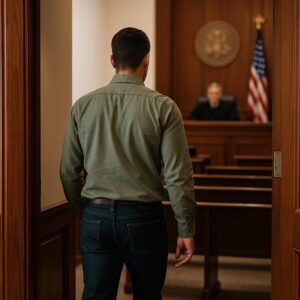According to the National Motorist Association, Texas has more speed traps than any other state — 1,383 locations, over 300 more than the second-ranked state (California). Indeed, the small town of Estelline, Texas was named the Worst Speed Trap City in the United States in 2012. Although Texas has passed a state law that prohibits a town of fewer than 5,000 from collecting more than 30 percent of their revenue from speeding tickets, this law obviously does not apply to Houston.
How Speed Traps Work
A speed trap occurs when an officer conceals himself, measures the speed of passing cars (typically with a radar gun) and tickets offenders. Two types of speed traps are common in Houston:
The tandem speed trap: One officer conceals himself and checks the speed of passing cars with a radar gun. When he finds a violator, he radios another officer to make the stop.
The camera speed trap: A radar gun is installed in an inconspicuous place such as a traffic light or a parked car. The device will photograph the license plates of violators and mail traffic tickets to them.
The Legality of Speed Traps
Speed traps are generally legal in Houston. A police officer may use an unmarked car (a common practice), and the officer does not have to show you the radar gun reading. The only legal restriction that would apply to a city the size of Houston would be the prohibition against establishing arbitrarily low speed limits with no apparent justification other than to increase municipal revenue through the collection of traffic fines. Except for commercial vehicle drivers radar detectors are legal in Texas.
Houston Speed Traps
Following is a list of some of the more well-known speed traps in Houston. Since the location of local speed traps changes over time, the information below is subject to change without notice:
- Parker Road and Exeter
- Moorwick and Wickchester
- Wescott southbound approaching Memorial Drive
- Mykawa between Airport and Belfort
- Silverstone and Airport Blvd.
The Texas Point System
The Texas Driver Responsibility Program imposes demerit points against the driving records or motorists who violate traffic laws. Too many points can result in additional fines for traffic offenses. Points remain on your driving record for three years.
You can be assessed two points for speeding in excess of 110 percent of the posted speed limit or speeding in a school zone, and you can be assessed three points for speeding that results in an accident. If you accumulate at least six points in three years, you must pay a $100 surcharge for a traffic fine, plus $25 for each additional point you have accumulated during that period. You can avoid conviction for a traffic violation by taking a state-approved driver improvement course; however, Texas limits the frequency with which you are allowed to take such courses.
Fighting Back
Houston criminal defense attorney Mario Madrid has been practicing law for twenty years. His rich experience includes time as a defense lawyer, prosecutor and judge. Unlike about 90 percent of Texas criminal lawyers, he is board-certified as a specialist in Criminal Law, and he is a member of the national College of DUI Defense Attorneys.
Request a Free Consultation with Criminal Defense Attorney Mario Madrid:
If you have been charged with a traffic offense in the Houston area, call Madrid Law, PLLC at 713-877-9400 for a free initial consultation. or fill out this form below:
[contact-form-7 id=”37″ title=”Contact form 1″]




